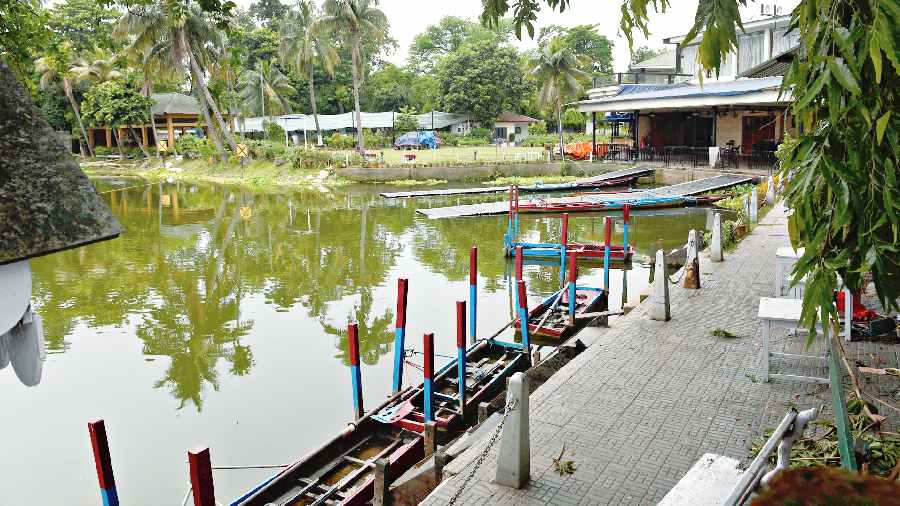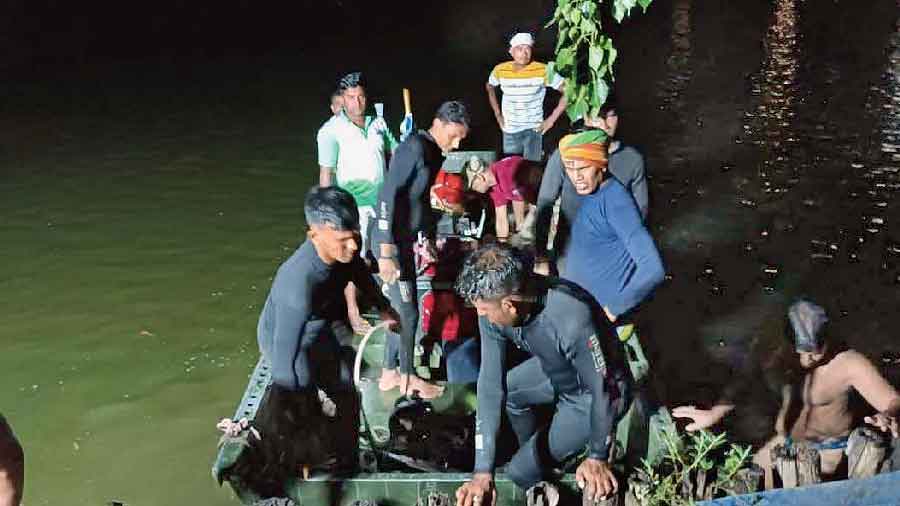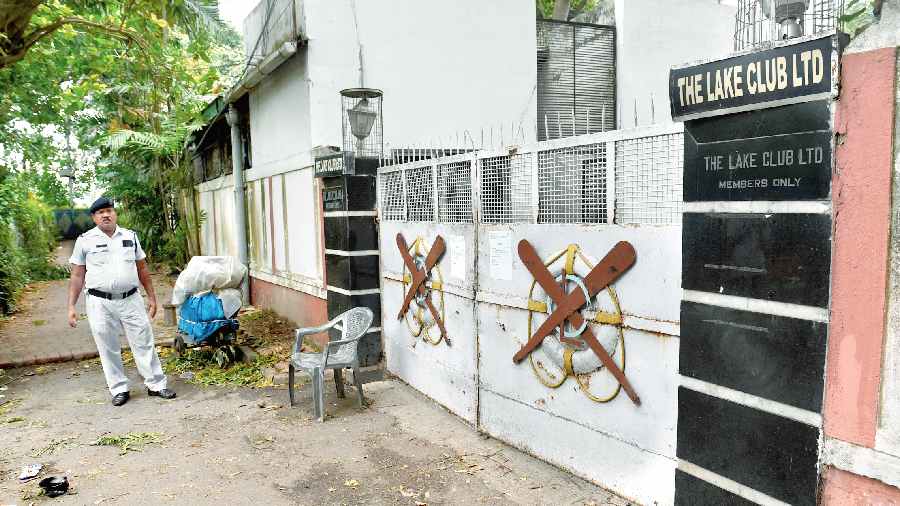Subha Das, 20, was the coxswain, or simply cox, on the boat with four schoolboy rowers that capsized in the Rabindra Sarobar during Saturday’s Nor’wester, killing two of the teens.
A cox is a member of the crew who does not row but steers the boat. Das, a residentof Tollygunge in south Kolkata, has been rowing in the lake for close to four years now.
Das said Saturday’s tragedy would “haunt me for life”. Below is his account of the events, with the italicised portions being annotations added by this newspaper.
Das’s account
I arrived at the club around 3.30pm on Saturday. The sky looked normal then. The four rowers came to me and said they wanted to practise for Sunday’s finals (of the Bengal Rowing Club’s school regatta, now postponed) and requested me to be the cox.
It was around 3.45pm when we put the boat in the water. We completed a full up-and-down course, spanning around 2,000 metres. The sky had started changing colour. By the time we had completed another 500 metres of the up stretch, the sky had turned pitch dark.
We decided to return. We turned the boat back and had reached the first island, around 250 metres from the Lake Club side of the shore, when the storm broke out. Strong gusts of wind kept battering us. Suddenly, a ferocious gust overturned the boat.
It took us several seconds to make sense of what was happening. We struggled to sight one another because the water had turned extremely rough. It was very difficult to negotiate the waves.
Right next to our boat there was a whirlpool (a rotating mass of water into which objects may be drawn, typically caused by the meeting of conflicting currents). In my four years of rowing in the lake, I had never faced such a situation.
Our boat was being drawn into the whirlpool. I realised it would be impossible for all five of us to hold on to the boat.
(Rowing boats capsizing is not uncommon but boats made of carbon fibre, like the one Subha was steering, do not sink. When a boat overturns, the standard practice for rowers is to hold on to the boat and wait for help to arrive, usually in the form of another boat.)
So I advised the four rowers to try and swim to the shore. I too joined them. The Lake Kalibari ground, over 100 metres from where we were, seemed the nearest spot of land. But reaching it required swimming against strong waves — flowing with the waves would have taken us backwards, into the middle of the lake.
We relied on our swimming skills and started moving towards the nearest shore. But after the first few minutes, I realised that one of the four was struggling. He seemed to be a novice as a swimmer and looked panicky.
I thought he was at the highest risk among the four. My priority was to save him first. The other three kept swimming and I stayed back with the boy.
A few minutes later, I spotted another rowing boat approaching us. There were two senior rowers on the boat. It was like a godsend. I held the boy and took him to the boat. One of the rowers grabbed him and the boat moved towards the shore.
Relieved, I turned and began looking for the remaining three but could not see them. I thought they must have got near the shore.
I kept swimming towards the shore when a punting boat (a wooden boat, usually anchored near the shore and used by beginners to learn the motions of the oar) came up to me. I managed to climb on to the boat.
It took us to the Calcutta Rowing Club, where I met the boy who had been helped by the rowing boat. There were many rowers and club officials and the scene was chaotic.
After a while, one of the other boys arrived at the club. But he was alone. He said he had lost track of the two remaining boys in the water.
I started panicking. Each minute seemed like an hour. Deep inside, I knew that with each passing minute, their chances of survival were diminishing. I kept praying for their safety.
I was devastated when the bodies were fished out.
In the water, I had done what seemed right. I had listened to my gut feeling. But I had failed to save all of them and will forever live with that feeling of guilt.
The sight of the mother of one of the boys crying inconsolably will haunt me for life.


